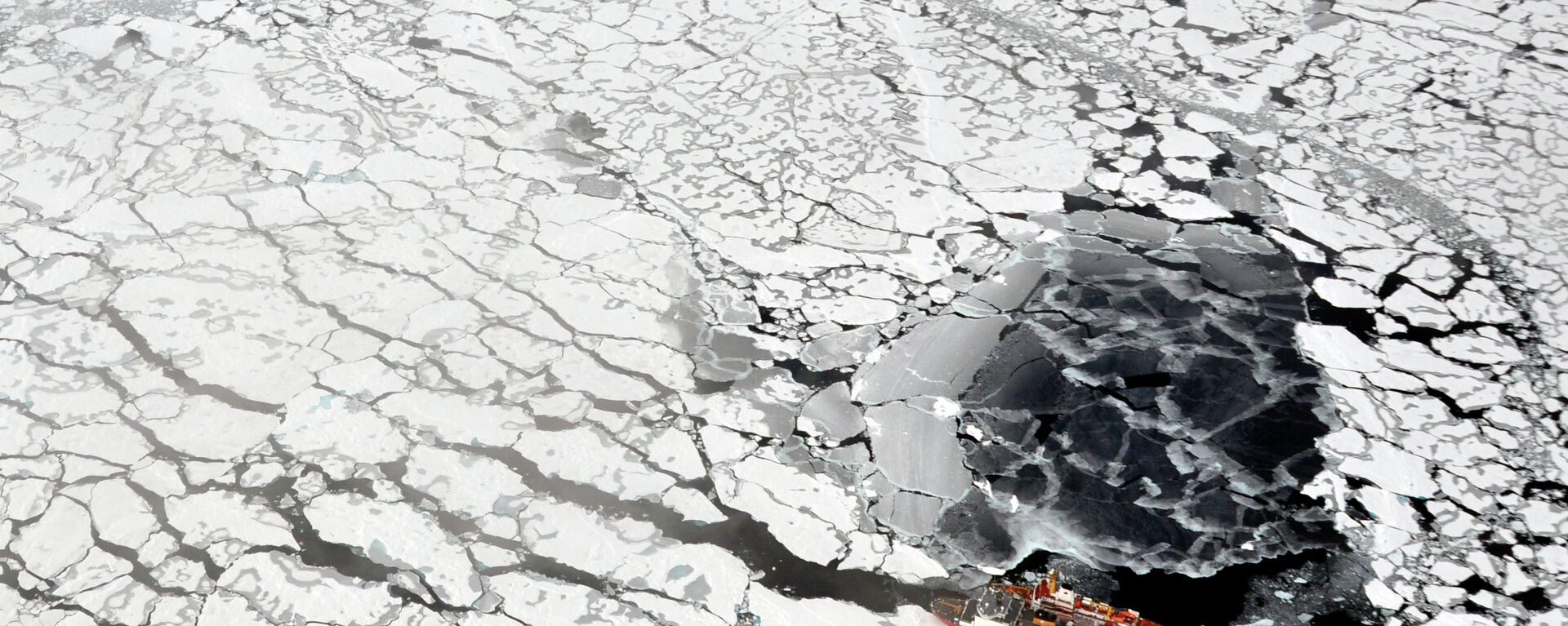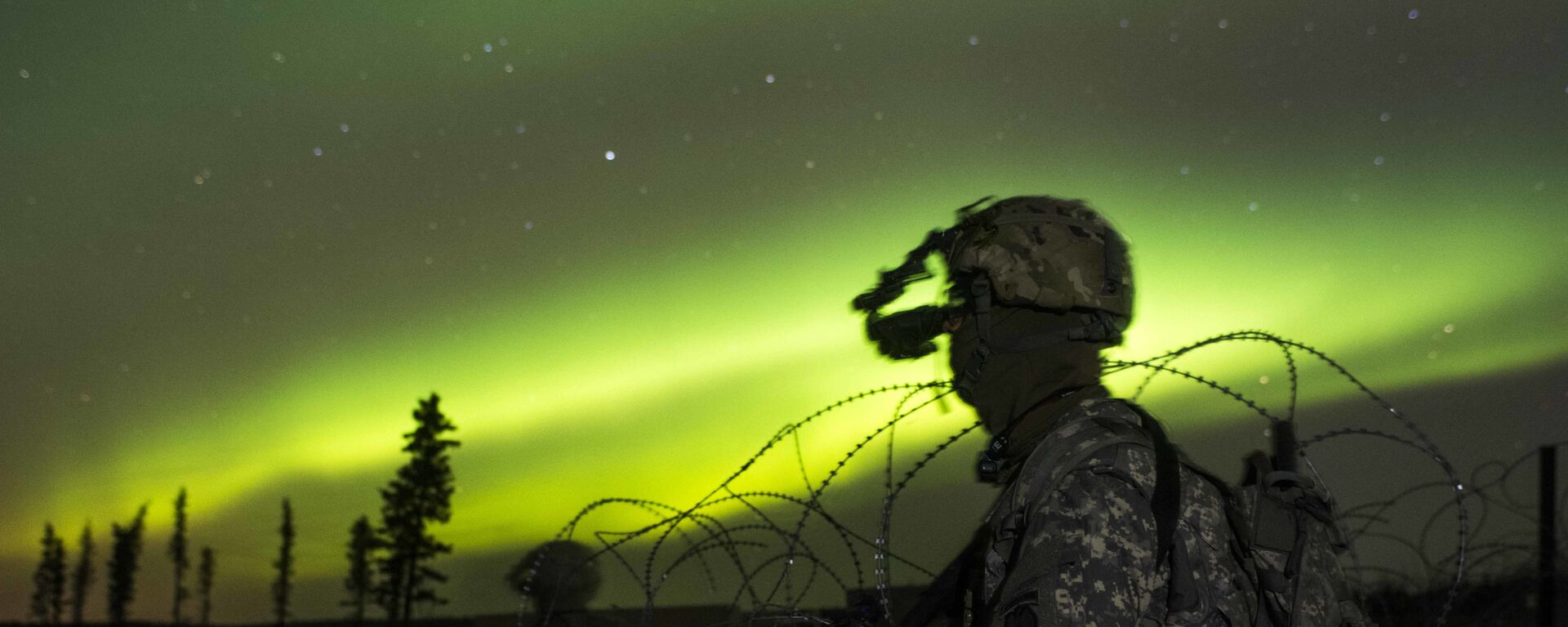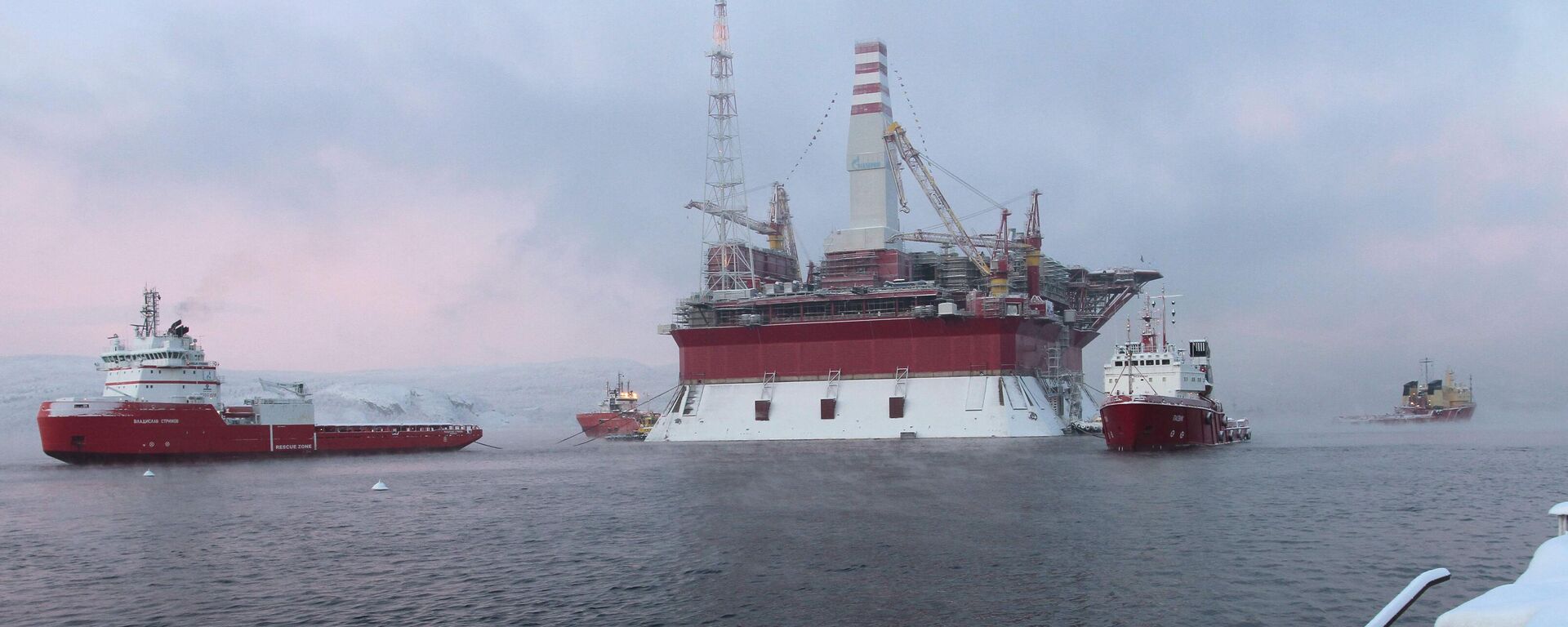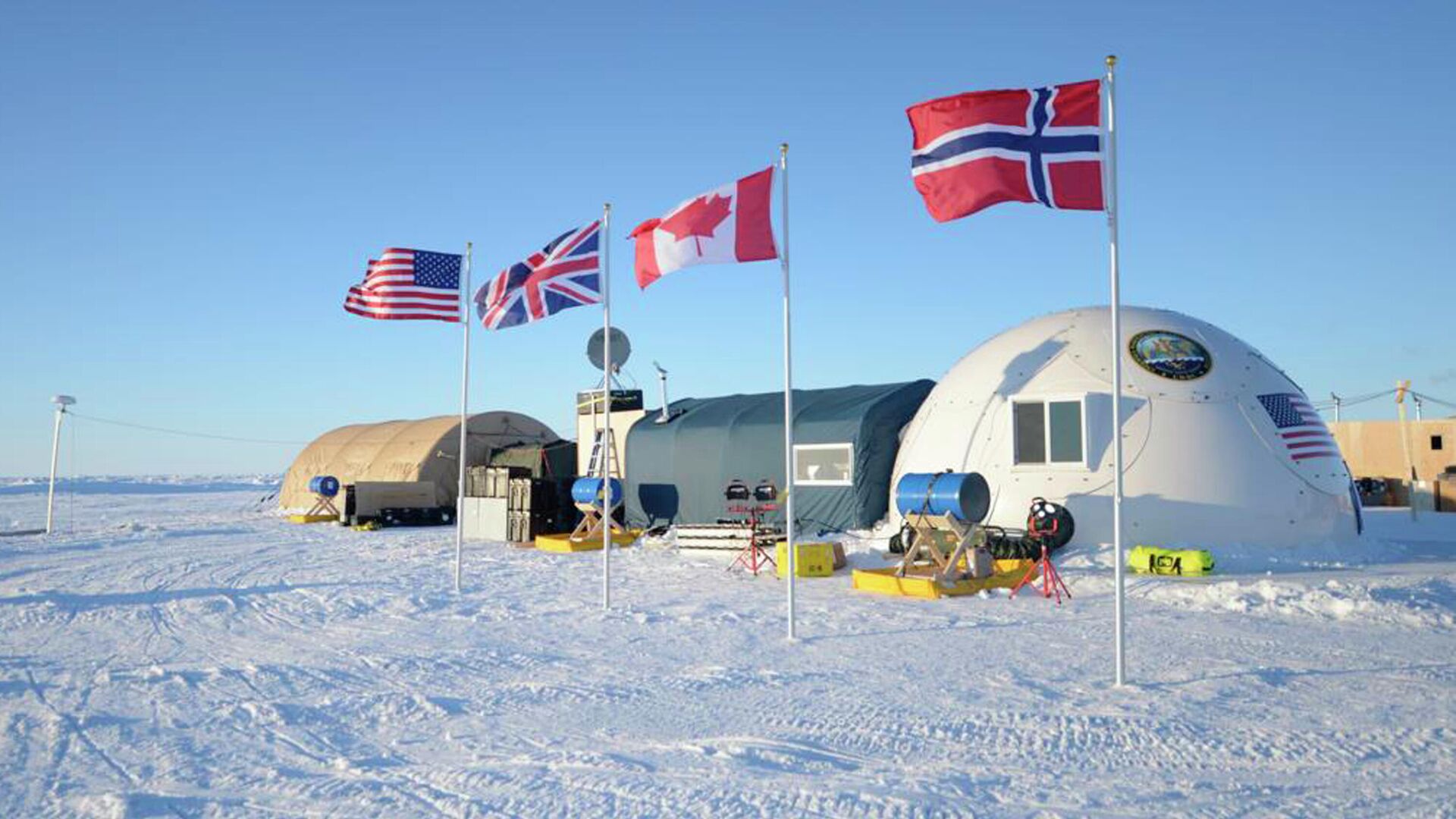https://sputnikglobe.com/20231225/bypassing-unclos-why-us-extended-continental-shelf-claims-are-tricky-1115807227.html
Bypassing UNCLOS? Why US Extended Continental Shelf Claims Are Tricky
Bypassing UNCLOS? Why US Extended Continental Shelf Claims Are Tricky
Sputnik International
The US has brought forward claims to extended continental shelf (ECS) in the Arctic region. What territories do the claims cover and are they legitimate?
2023-12-25T16:25+0000
2023-12-25T16:25+0000
2023-12-28T18:32+0000
world
us
ronald reagan
valery gerasimov
arctic
russia
washington
national oceanic and atmospheric administration (noaa)
us geological survey (usgs)
state department
https://cdn1.img.sputnikglobe.com/img/07e5/0c/01/1091174343_0:144:3000:1832_1920x0_80_0_0_edfcd5b624f441a294a36fd09b271cb2.jpg
The US Department of State on December 19 released the geographic coordinates determining the outer limits of the nation's continental shelves in seven areas beyond 200 nautical miles (370.4 kilometers) from the coast, known as the extended continental shelf (ECS).The ECS in question covers about 386,100 square miles (1 million square kilometers) and is predominantly located in the Arctic and Bering Sea. This area is considered to be of growing strategic importance. Canada and Russia also have their interests in the Arctic region claimed by the US.What Territories Does the US Lay Claim to?The US has unilaterally secured rights to seabed floor in seven US regions: the Arctic, Atlantic Ocean, Bering Sea, Pacific, Mariana Islands, and two areas in the Gulf of Mexico.Don't Confuse ECS and EEZThe Extended Continental Shelf (ECS) shouldn't be confused with the Exclusive Economic Zone (EEZ). The EEZ is an area of the ocean, extending 200 nautical miles (370.4 kilometers) beyond a nation's territorial sea within which a country has full jurisdiction over various resources. The United States boasts one of the largest EEZ in the world (second only to France). It covers 11,351,000 square kilometers.When it comes to the ECS, the continental shelf is that part of the seabed over which a coastal state exercises sovereign rights. It extends out to a distance of 200 nautical miles from the coast or beyond if the shelf is naturally larger than that limit. The ECS includes just the seabed and subsoil of the submarine area claimed by a coastal state, whereas the EEZ also includes the water column.What are the Rules for Laying ECS Claims?The United Nations Convention on the Law of the Sea (UNCLOS) contains a legal definition of the ECS and provides the rules for coastal states claiming continental shelves beyond 200 mile limit. First, a country must sign and ratify UNCLOS. Then, within 10 years from the date it ratified UNCLOS it should submit extended continental shelf claims.Under Article 76, the Commission on the Limits of the Continental Shelf (CLCS) makes sure that a coastal state has applied all necessary technical and scientific requirements and assists it in the process of delineation of its outer limits. Only if the coastal state meets CLCS requirements and takes its recommendations into account, the outer limits of its continental shelf are considered to be final and binding.Is the US Party to UNCLOS?Even though the US State Department cites UNCLOS provisions in its December 19 announcement, Washington has never signed or ratified the Convention following its adoption by the UN in 1982.At that time the Reagan administration stated that it could not accept the Part XI of the Convention established to govern deep seabed mining in areas beyond the continental shelf. At the same time, Washington signaled that it would accept and act in accordance with the provisions of UNCLOS relating to "non-seabed uses" of the ocean, such as navigation and overflight.Meanwhile, after a series of informal consultations between 1990 and 1994 the deep seabed mining provisions of the Convention had been largely modified. Nonetheless, the US Congress has failed to ratify the document and amended provisions in the subsequent years.Legal Concerns Haunt the USCommenting on the US decision to lay claims to extended continental shelves, the Woodrow Wilson International Center for Scholars (WWICS), a DC-based think tank, noted that while the US State Department has made a "monumental step", its significance is "muted by the implementation and credibility challenges the US will face as a consequence of its continuing failure to ratify the UN Convention on the Law of the Sea (UNCLOS), in which the process for arbitrating ECS claims is laid out, among many other areas of important maritime governance."Per Wilson Center's Abbie Tingstad, an Arctic professor, "lacking UNCLOS accession, US allies and adversaries alike may perceive the announcement as circumvention of the rules and norms of international maritime governance and decision-making." In her op-ed Tingstad suggested that the unfolding situation could cause "issues" for cooperation in the Arctic, stressing that UNCLOS is a central tenet of governance in the region. "In a world of hard choices, today’s announcement provides a choppy way forward," she warned last week.Russia Has Raised Concerns About US Unilateral MoveRussia has raised concerns about Washington's cutting corners in order to secure rights over the resource-rich continental shelf in the Arctic.Karasin drew attention to the fact that Moscow's Arctic claims were considered by a United Nations commission in accordance with UNCLOS and based on a trove of collected evidence. For its part, the US not only snubbed the procedure, it's not even a party to UNCLOS. Thus, the US State Department's move creates a negative legal precedent, per the Russian lawmaker.Meanwhile, Russian military commentators refer to US-NATO's growing expansion in the Arctic region. Chief of the General Staff of the Russian Armed Forces Gen. Valery Gerasimov previously stated that the West is increasing its military presence in the High North and developing military infrastructure there.For its part, Russia has deployed its troops there not to demonstrate force, but to ensure the security of economic development of the region, including navigation in the waters of the Northern Sea Route and the implementation of projects in the field of exploration and production of natural resources, per the general.Washington's unilateral claims bypassing UNCLOS provisions appear to demonstrate once again the Biden administration's assertive foreign policy that is conducted in defiance of international law and order.
https://sputnikglobe.com/20231022/nato-gets-chills-over-prospective-russian-chinese-military-cooperation-in-arctic-1114406420.html
https://sputnikglobe.com/20231224/russia-lambasts-us-unacceptable-claims-to-arctic-shelf-1115789768.html
https://sputnikglobe.com/20231225/world-has-right-not-to-recognize-new-us-claims-in-arctic---russian-senator-1115797493.html
arctic
russia
washington
Sputnik International
feedback@sputniknews.com
+74956456601
MIA „Rossiya Segodnya“
2023
Sputnik International
feedback@sputniknews.com
+74956456601
MIA „Rossiya Segodnya“
News
en_EN
Sputnik International
feedback@sputniknews.com
+74956456601
MIA „Rossiya Segodnya“
Sputnik International
feedback@sputniknews.com
+74956456601
MIA „Rossiya Segodnya“
us in the arctic, russia in the arctic, does any country own the arctic, developments in the arctic, what countries are in the arctic, is nato in the arctic, military hostilities in the arctic, military build up in the arctic, us vs russia in the arctic, natural resources in the arctic
us in the arctic, russia in the arctic, does any country own the arctic, developments in the arctic, what countries are in the arctic, is nato in the arctic, military hostilities in the arctic, military build up in the arctic, us vs russia in the arctic, natural resources in the arctic
Bypassing UNCLOS? Why US Extended Continental Shelf Claims Are Tricky
16:25 GMT 25.12.2023 (Updated: 18:32 GMT 28.12.2023) The US has brought forward claims to extended continental shelf (ECS) in the Arctic region. What territories do the claims cover and are they legitimate?
The US Department of State on December 19 released the geographic coordinates determining the outer limits of the nation's continental shelves in seven areas beyond 200 nautical miles (370.4 kilometers) from the coast, known as the extended continental shelf (ECS).
The ECS in question covers about
386,100 square miles (1 million square kilometers) and is predominantly located in the
Arctic and Bering Sea. This area is considered to be of growing strategic importance. Canada and Russia also have their interests in the
Arctic region claimed by the US.
What Territories Does the US Lay Claim to?
The US has unilaterally secured rights to seabed floor in seven US regions: the Arctic, Atlantic Ocean, Bering Sea, Pacific, Mariana Islands, and two areas in the Gulf of Mexico.
"Determining the ECS outer limits requires data on the depth, shape, and geophysical characteristics of the seabed and subsoil. The National Oceanic and Atmospheric Administration (NOAA) and US Geological Survey (USGS) were responsible for collecting and analyzing the necessary data. Data collection began in 2003 and constitutes the largest offshore mapping effort ever conducted by the United States," the State Department announcement said.
Don't Confuse ECS and EEZ
The
Extended Continental Shelf (ECS) shouldn't be confused with the
Exclusive Economic Zone (EEZ). The EEZ is an area of the ocean, extending
200 nautical miles (370.4 kilometers) beyond a nation's territorial sea within which a country has full jurisdiction over various resources. The United States boasts one of the largest EEZ in the world (second only to France). It covers
11,351,000 square kilometers.
When it comes to the ECS, the continental shelf is that part of the seabed over which a coastal state exercises sovereign rights. It extends out to a distance of 200 nautical miles from the coast or beyond if the shelf is naturally larger than that limit. The ECS includes just the seabed and subsoil of the submarine area claimed by a coastal state, whereas the EEZ also includes the water column.

22 October 2023, 12:37 GMT
What are the Rules for Laying ECS Claims?
The
United Nations Convention on the Law of the Sea (UNCLOS) contains a legal definition of the ECS and provides the rules for coastal states claiming continental shelves
beyond 200 mile limit. First, a country must sign and ratify UNCLOS. Then, within 10 years from the date it ratified UNCLOS it should submit extended continental shelf claims.
Under Article 76, the Commission on the Limits of the Continental Shelf (CLCS) makes sure that a coastal state has applied all necessary technical and scientific requirements and assists it in the process of delineation of its outer limits. Only if the coastal state meets CLCS requirements and takes its recommendations into account, the outer limits of its continental shelf are considered to be final and binding.
Is the US Party to UNCLOS?
Even though the US State Department cites UNCLOS provisions in its December 19 announcement, Washington has never signed or ratified the Convention following its adoption by the UN in 1982.
At that time the Reagan administration stated that it could not accept the Part XI of the Convention established to govern deep seabed mining in areas beyond the continental shelf. At the same time,
Washington signaled that it would accept and act in accordance with the provisions of UNCLOS relating to "
non-seabed uses" of the ocean, such as navigation and overflight.

24 December 2023, 18:57 GMT
Meanwhile, after a series of informal consultations between 1990 and 1994 the deep seabed mining provisions of the Convention had been largely modified. Nonetheless, the US Congress
has failed to ratify the document and amended provisions in the subsequent years.
Legal Concerns Haunt the US
Commenting on the US decision to lay claims to extended continental shelves, the
Woodrow Wilson International Center for Scholars (WWICS), a DC-based think tank, noted that while the US State Department has made a "
monumental step", its significance is "
muted by the implementation and credibility challenges the US will face as a consequence of its continuing failure to ratify the UN Convention on the Law of the Sea (UNCLOS), in which the process for arbitrating ECS claims is laid out, among many other areas of important maritime governance."
Per Wilson Center's Abbie Tingstad, an Arctic professor, "lacking UNCLOS accession, US allies and adversaries alike may perceive the announcement as circumvention of the rules and norms of international maritime governance and decision-making." In her op-ed Tingstad suggested that the unfolding situation could cause "issues" for cooperation in the Arctic, stressing that UNCLOS is a central tenet of governance in the region. "In a world of hard choices, today’s announcement provides a choppy way forward," she warned last week.
Russia Has Raised Concerns About US Unilateral Move
Russia has raised concerns about Washington's cutting corners in order to secure rights over the resource-rich continental shelf in the Arctic.
"Unilateral expansion of borders in the Arctic is unacceptable and can only lead to increased tension. It is necessary, first of all, to prove the geological affiliation of these territories, just as Russia did," Grigory Karasin, head of the foreign affairs committee of Russia's upper house of parliament, told Sputnik on Sunday.
Karasin drew attention to the fact that Moscow's Arctic claims were considered by a United Nations commission in accordance with UNCLOS and based on a trove of collected evidence. For its part, the US not only snubbed the procedure, it's not even a party to UNCLOS. Thus, the
US State Department's move creates a negative legal precedent, per the Russian lawmaker.

25 December 2023, 12:25 GMT
Meanwhile, Russian military commentators refer to US-NATO's growing expansion in the Arctic region. Chief of the General Staff of the Russian Armed Forces Gen.
Valery Gerasimov previously stated that the
West is increasing its military presence in the High North and developing military infrastructure there.
For its part, Russia
has deployed its troops there not to demonstrate force, but to ensure the security of economic development of the region, including navigation in the waters of the
Northern Sea Route and the implementation of projects in the field of exploration and production of natural resources, per the general.
Washington's unilateral claims bypassing UNCLOS provisions appear to demonstrate once again the
Biden administration's assertive foreign policy that is conducted in
defiance of international law and order.





